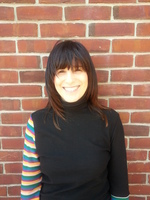
NOTE: THIS ARTICLE WAS ORIGINALLY PUBLISHED IN BINAH'S COLUMN: THERAPY: A SNEAK PEAK INSIDE
The teenager sitting in my office is mechallel Shabbos. Eats treif. Wants to wear pants.
The couple coming to me for marital counseling is in pain. They are the sweetest people and want desperately to make their marriage work. But he is a Kohen and she is a divorcee.
For another client, obsessive-compulsive behavior is manifesting itself in religious rituals we hold sacrament. Like ridding our homes from chametz before Pesach, or accepting kabbalos upon oneself in times of challenge.
A child describes his attempts to adhere to the Commandment of Honor Thy Father, but the description of his father's behavior indicates a mental illness that is wreaking havoc on the child's own ability to maintain mental stability.
Many decades ago, when I was a high school student, my friends and I begged for some courses in psychology. The school administration was horrified. Apikorsus! They exclaimed.
And yet today, many upstanding, religious high schools offer courses in psychology.
In my days, the premise of psychology, and therapy, was heresy. The doctrines, the philosophy, the teachings, all were based on the theories of Sigmund Freud, the undisputed father of psychology. Today psychology has branched out, and although Freud is still considered a genius and groundbreaking therapist, his disciples have long since abandoned his teachings in favor of psychology that teaches the importance and impact of human relationships; and human development in context of those relationships, both positive and negative. Today there abounds many theories and methods of psychological treatment in therapy that can be seamlessly integrated into our system of religious values and lifestyle. For the most part, there is little conflict between the theories that drive therapy, the therapist and client, and religious doctrine.
When I went to college to become a social worker, I do not remember struggling with religious beliefs in context of the courses I was obligated to take.
But yet today as a therapist, I struggle:
Who am I first? A social worker—or a religious, orthodox Jew?
Seems like a no-brainer, doesn’t it?
Yes. And no.
All my life I have juggled many roles, as most people do. Woman, daughter, sister, friend, teacher, mentor, wife, mother, Jew, neighbor…Which identity is most important? Which is the identity that defines me most? Which identity can I not live without?
These questions become even harder to answer when I sit with a client and religious values clash in context of the therapeutic setting.
And here is why.
As a social worker, I am bound by the Code of Ethics that charges me to be culturally competent. According to section 1.05(b), I must seek to understand social diversity with respect to religious and/or cultural differences and (c) I may not exploit others to further my own religious interests.
So how do I counsel that teen who is mechallel Shabbos,? As a therapist I am fully present with her in her pain and do not seek to foist my values on her but rather, am moved to help her discover her own path; but paradoxically, as a religious Jew, it pierces me to my core and want her to find Yiddishkeit again. In a different setting, how do I respond to the teen coming from a far more religious background who asks me about going to college—a goal I respect—when it is clearly against her cultural upbringing?
How do I counsel a couple whose very marriage defies halachah? Can I be a party to effect the success of a marriage between a Jew and non-Jew ?
How do I straddle the fence between what psychologically appears to be my my client's needs and yet seemingly clear halachic violations of kibud av v'em? We all know the story of the famous gadol who allowed his mentally ill mother to shame him in public, and even bent over to become a step-stool as she walked on his back over the mud. Is that what is expected of our clients when faced with similar nisyonos?
As a social worker I am bound by the Code of Ethics to be committed to the client, to allow for self-determination and not push my own agenda, to display cultural competency, and to resolve conflicts of interest in ways that respect the client's needs more than my own.
As a religious Jew, sometimes the Code of Ethics create seemingly insurmountable conflicts between what is right for the client and what is right for a Jew.
And here is what I do, to the best of my ability.
Sometimes, I put it right out there for my clients who are less observant than I am or struggle with Yiddishkeit. I say, “You realize from my dress and wig that I am religious. Are you okay with it?” and that may open up a discussion of how they are afraid of being judged on their own lifestyle which they feel is incongruous to mine.
I say, “Look, I am a therapist and my job is to help you solve the problems that brought you here to begin with. I am not judging you or pushing religion on you. But the same way being a woman influences the way I think, how being a New Yorker has impacted on who I am, being a religious Jew has also been a causative factor in my makeup. I am a person here in this room, as you are. And I intend to relate to you as a person, not as a robot. So if you ever feel judged by my views, hey, let me know and it will be part of our work together!”
But then there are situations which truly seem to violate my religious—or ethical—values.
If the issue is mine alone—like counseling a couple who are not allowed to be together halachically—and I want to know what is the psak for me as a therapist (as the couple finds halachah irrelevant), I have my own rav to whom I will pose my questions.
If the client needs halachic guidance because she feels that therapy is contradicting his religious beliefs (in Kibud Av or Pesach cleaning), then I encourage him to sign a release allowing me first to talk to his rabbi, and then help him to submit his questions for clarification.
I cannot recall a time when a psak violated any ethics of my field, or there was no satisfactory solution to a dilemma that appeared to be a conflict between ethical and religious values.
Because in truth, the no-brainer is that we do the best we can and the rest is up to Hashem.
GO TO MY PROFILE ON LINKEDIN https://www.linkedin.com/in/mindy-blumenfeld-a8067583
My book, Therapy, Shmerapy, can be found in bookstores or online

 Previous
Previous

